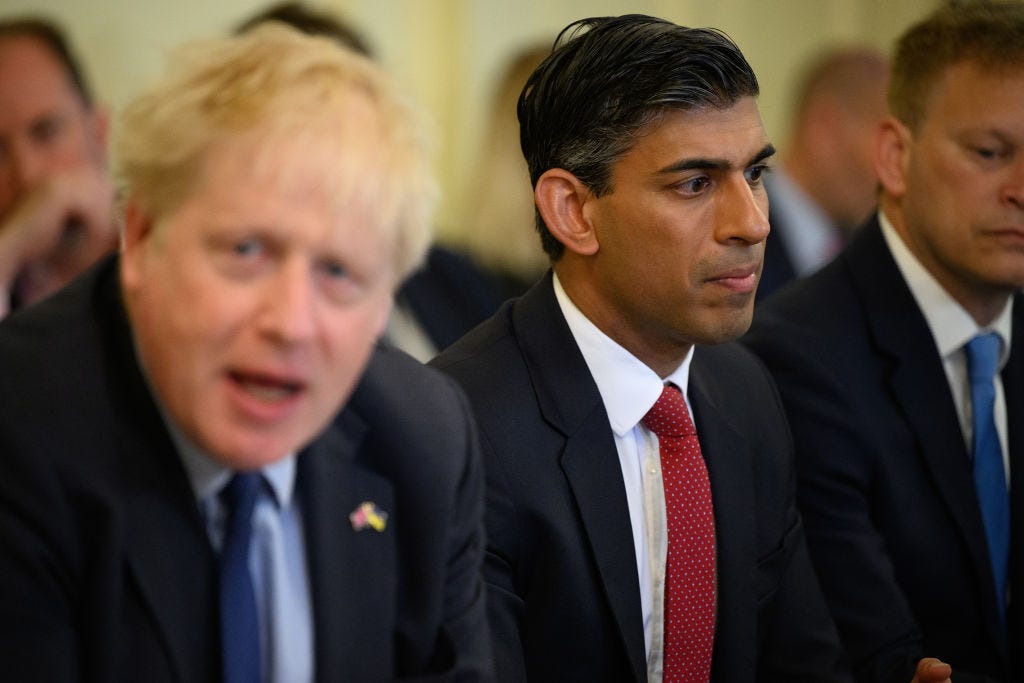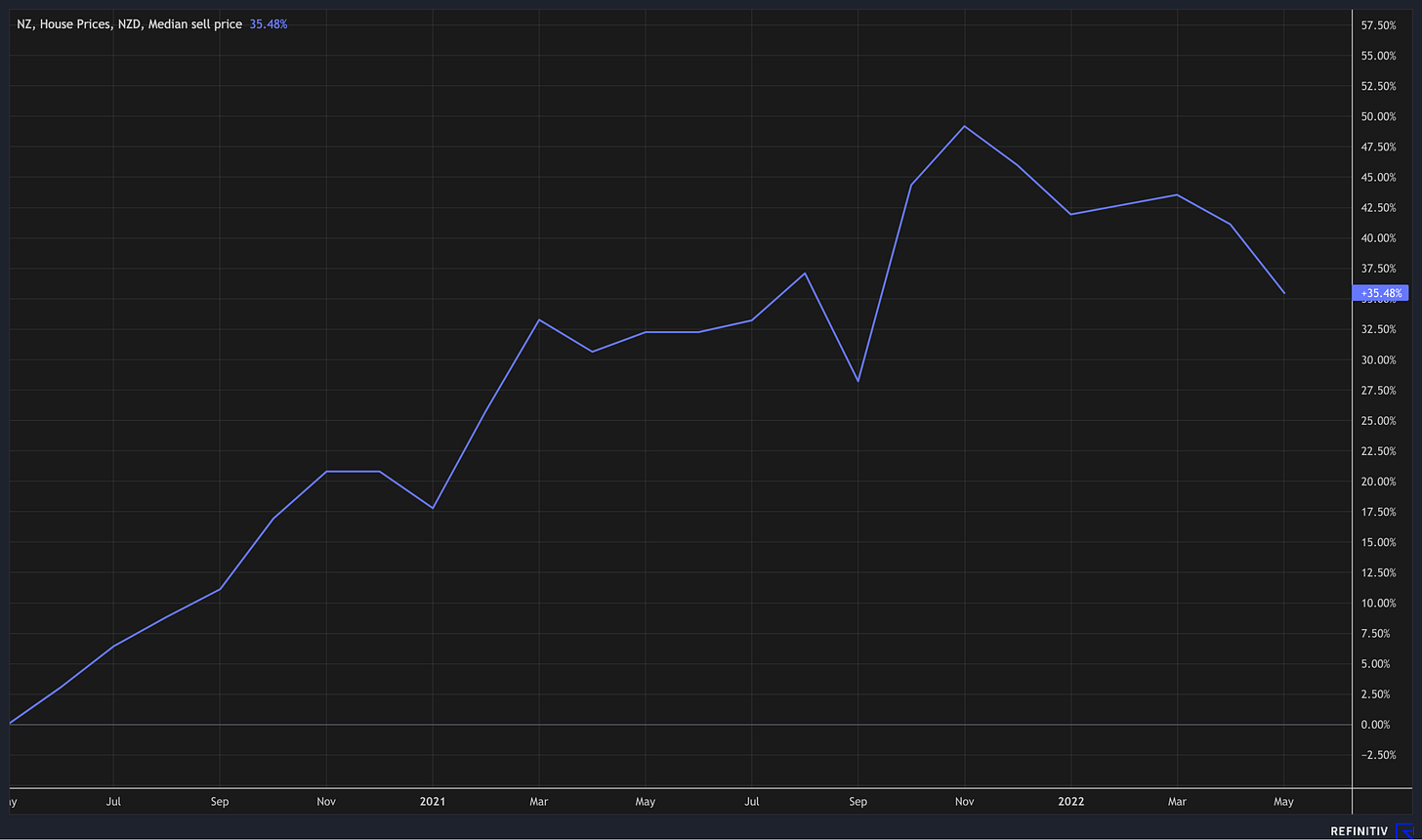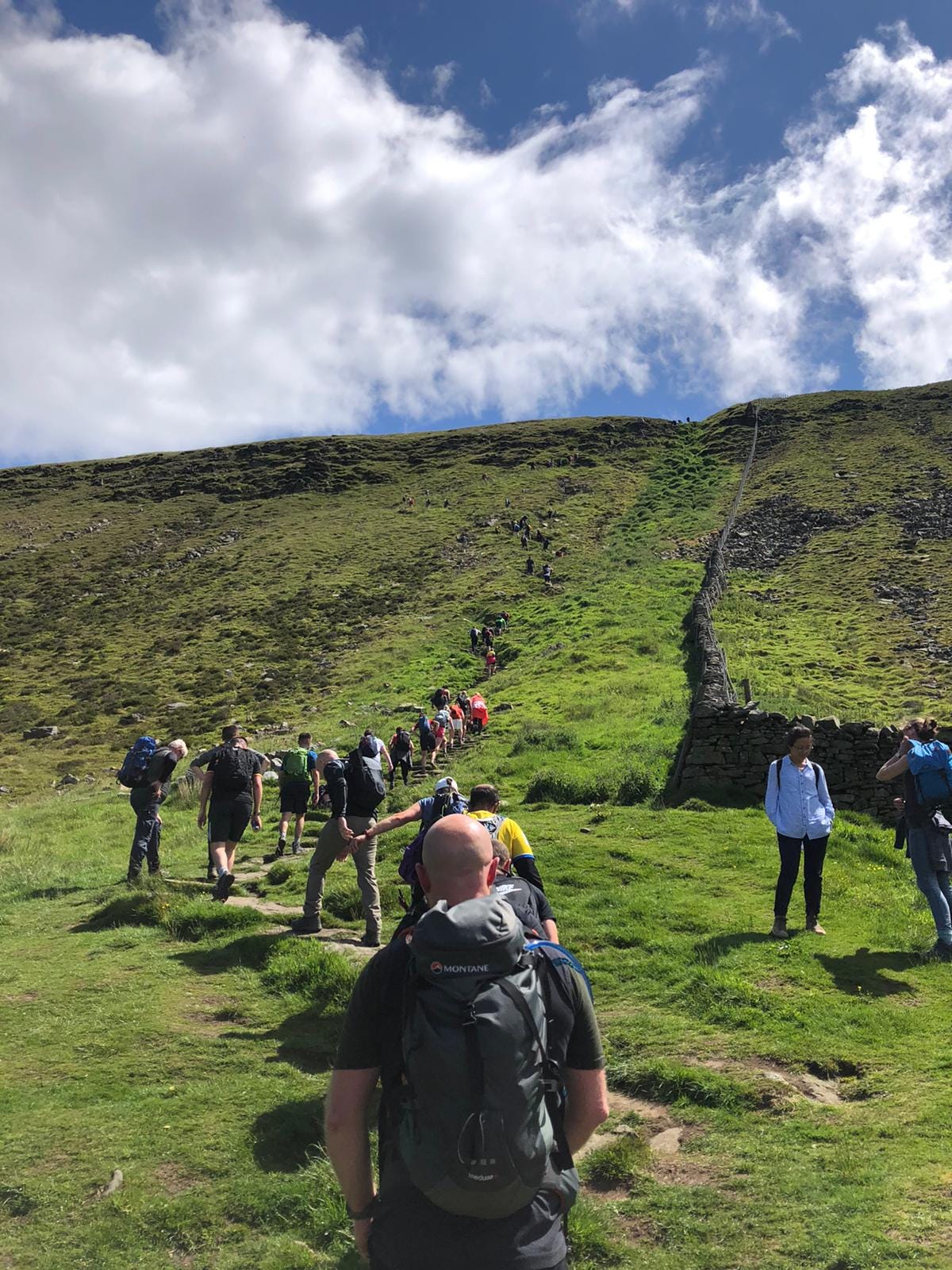Revisiting Rishi...
The chancellor's forgotten speech + New Zealand house prices + Three Peaks update
Rishi Sunak gave a speech earlier this year in which he came closer than anyone else in power in recent years to laying out a long-term vision for the UK economy. It was delivered on February 24, the day Russia invaded Ukraine. As a consequence of the invasion and the turmoil that has engulfed Boris Johnson’s government, the contents of the speech have largely been forgotten. But as a beleaguered Johnson and Sunak prepare to give a new speech on the economy to try to reset their administration, as well as debate whether to go-ahead with an increase in corporation tax from 19 per cent to 26 per cent next year and try to level up the UK, the contents of the speech are worth recalling. There are ideas in the speech that could prove vital in boosting the economy and communities outside London and are relevant to many of the stories we have looked at in Off to Lunch in recent weeks…
Sunak was giving the annual Mais lecture at Bayes Business School in London. He laid out what he described as a “new culture of enterprise” and “the future economy we must build”. This was, he said: “An economy where businesses are investing more; where people of all ages are supported to learn; and, most importantly, where ideas and innovation constantly transform our lives.”
Away from the House of Commons, this speech avoided the worst of political grandstanding and offered nuanced takes rather than portraying complex issues as black-and-white. For instance, culture, Sunak said, “is a collective mass of the millions of decisions made by people and businesses”. And while he said free market principles were “the best way to organise our economy”, he added: “For all that there is a moral and material case for the market, I recognise its limits.” This means the UK should look to support people caught up in “the disruption and dislocation” of economic change, Sunak said, as well as guard against free markets influencing our family and communities too much ("eroding the bonds between us, and turning a market economy into a market society”) and recognising the government must take a lead on key external issues like Covid-19, the Russian-Ukraine war and tackling climate change.
Sunak’s speech revolved around the economy being driven through capital, people and ideas. He described how the government could help on these issues but also where it should stand back. Its role, he said, “was far less important than creating the conditions for private businesses and individuals to thrive”.
His ideas and outlook for the economy were underpinned by the need to boost productivity in the long-term, which has lagged other Western countries. Boosting business investment was key, he said. Capital investment by UK businesses averages just 10 per cent of GDP, compared to the OECD average of 14 per cent. Sunak added:
The lower level of capital investment we see by UK businesses is not primarily driven by the sectoral composition of our economy, or by differences in firm size, and is observed across all regions. This is a pervasive economy-wide issue, it has been persistent for decades, and we must fix it to improve productivity, growth, and living standards. Indeed, we need the private sector to invest to level up this country.
Interestingly, on business taxes, he then added:
An analysis of the Net Present Values of different countries’ tax treatment of long-lived capital assets like plant and machinery shows that despite the UK’s highly competitive headline corporation tax rates, the overall tax treatment provided for capital investment is much less generous than the OECD average. It is unclear that cutting the headline corporation tax rate did lead to a step change in business investment; we need our future tax policy to be targeted and strategic.
So as I develop a business tax strategy for the years ahead, it seems likely to me that a priority will be to cut taxes on business investment
As Sunak seemingly comes under pressure from Johnson and other cabinet colleagues to rethink the rise in corporation tax he should remember these comments…
He then went on to emphasise the importance of greater investment in training employees and research and development…
So it should concern us that UK employers spend just half the European average on training their employees. Many employers don’t offer training at all. And less than 10 per cent of the spending on training by UK employers goes to high-quality formal training offered by external providers.
On R&D, he said he was optimistic that artificial intelligence will deliver significant productivity improvements….
The effect of AI will soon become apparent; it is plausible to believe we are passing the bottom of the productivity J curve.
The government will offer attractive visa schemes, tax breaks, and access to finance to support investment in R&D, Sunak added, but it is ultimately investment from businesses which is needed.
Re-reading the speech, a few things stand out. Firstly, that Sunak is one of the sharpest minds and few/only genuine thinkers in the cabinet. Secondly, as he mulls whether to introduce new tax breaks for 2023 to replace the super-deduction discount that businesses currently get for spending on plant and machinery assets (which means cutting tax by up to 25p for every £1 invested), Sunak should try to be as radical as possible. What about including regional variances on the tax break that encourage businesses to invest in parts of the country that need it most? Finally, the speech confirms a key fact about levelling up – it will be businesses that level-up the country, not the government. This will be done through investment in new facilities, the creation of new jobs, and the opening of new high street shops, restaurants and bars. It will be done through new businesses emerging in cities outside London or others expanding there. The government needs to make sure it gets out of the way…
One last thing, the Resolution Foundation has published a report today underlining what a daunting challenge levelling-up the UK is…




The Resolution Foundations report can be found here. Rishi Sunak’s full speech is here
A chart that helps you understand the world
The New Zealand housing market has been described as the canary in the coalmine, a test case for what happens to house prices after interest rates go up. The New Zealand housing market went on an extraordinary run during the Covid-19 crisis. However, it has started to fall since the central bank started increasing interest rates in October, ahead of the Bank of England and Federal Reserve. Interest rates were increased in October 2021 for the first time in seven years and since then have gone from 0.25 per cent to 2 per cent. House prices have fallen by around 5 per cent so far in 2022, but are still well above where they were two years earlier. However, there are more rate rises to come, and potentially further falls for house prices too…
You should also read this
A useful, clear summary of the crypto downturn from the perspective of a crypto bull. According to this take, crypto has entered a difficult period due to a lack of confidence in the system, sketchy behaviour and blow-ups, but the prospects for the sector and its technology are still strong and winners will emerge (Grit)
Jaguar Land Rover and other carmakers are trying to stop UK dealers from selling new cars abroad, where the starting price is often much higher (Telegraph)
A shopping centre in Wythenshawe is set to be bought by Manchester City Council in the latest local authority deal (Business Live)
Households could be paid to use less electricity at peak times as part of proposals by National Grid to reduce the risk of blackouts this winter (The Times)
San Francisco is struggling to get people back into the centre of the city following the surge in remote working at tech companies (Financial Times, paywall)
Hong Kong police are swapping British-style marching for the “goose step” used in China (Bloomberg)
For those who missed it, you can read Off to Lunch’s round-up of the Sunday papers here
And finally…
Thank you to everyone who got in contact with their advice and support about the Yorkshire Three Peaks Challenge before the weekend. This included really useful tips on routes, snacks, and where to find opportunities to top up on water and food.
Well, we completed it, getting back in a time of 8 hours 57 minutes, which we were pleased with. It was a brilliant day and we got lucky with the weather, with only about 30 minutes of rain in the afternoon which was immediately followed by some sunshine. This meant we got clear views from the tops of the three peaks, including a fantastic 360-degree view from the top of Ingleborough, from where you can see the coast and Lake District. It was tough, tougher than I expected in terms of the climbs themselves, especially the face of Ingleborough, which probably felt much steeper than it actually was given this was the third and final peak. I have included a photo below which shows part of that final climb and also how many people were doing the walk on Saturday…
Anyway, I would highly recommend it. We stayed in The Masons Arms in Gargrave and that was an excellent base for the weekend. The first pint of Timothy Taylor’s Boltmaker tasted very sweet on Saturday evening, as did the superb curry at Bollywood Cottage in Gargrave, which I would also recommend…
Thanks for reading. Off to Lunch will be back on Wednesday. If you want to contribute to the work of Off to Lunch, read Friday’s newsletter and attend our events then please sign up for a paid subscription below
Thanks again
Graham





